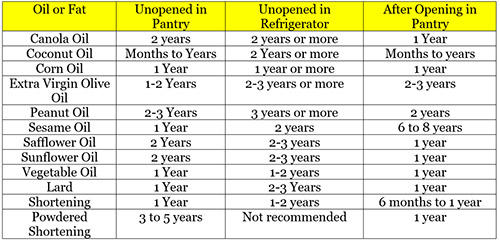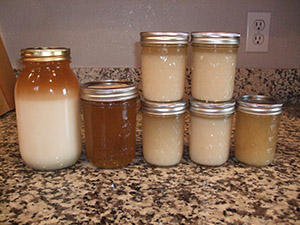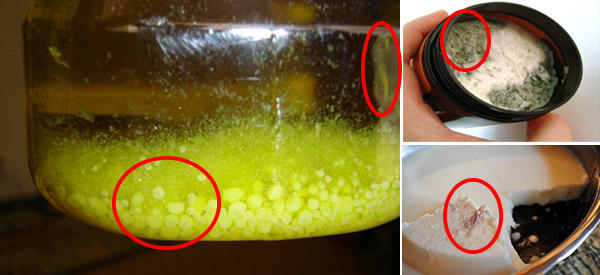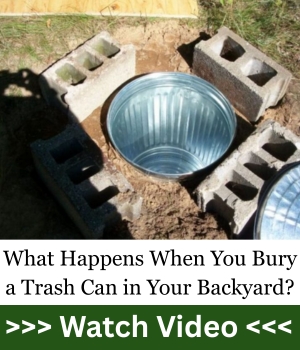Oils and fats have different storage times depending on the type of oil and storage conditions. Under normal storage conditions, your oil will last from a few months to three years or more. Sealed, canned shortening powder will last three to five years but does not perform the same as regular oils. You can extend these storage times with a few tricks I’ll teach you here.
What Causes Spoilage?
Oils and fats are vulnerable to the usual causes of food spoilage: microorganisms, oxidation, heat, light, pests, and time. For properly stored oils and fats, oxidation is the most common cause of rancidity, aided by time, temperature, humidity and light. I’ll cover protecting your oils and fats from all of these causes in this article.
How Long Does Oil Keep?
Unopened oils keep longer in the refrigerator or freezer. Once opened, moisture becomes a factor, so I keep most oils and fats in the pantry after opening. Moisture in the oil can shorten its shelf life as much or even more than the cooler temperature preserves it. If a cool, dry place is available, such as a basement or cellar, that would be a preferred location for storing opened oils.
Shelf Life of Common Oils and Fats
Flavored oils, such as chili oil, truffle oil, and garlic oil, spoil faster than pure oils, so it is best to store oils in their natural state and flavor them as needed or store only enough flavored oil for short-term use.
Related: How To Make Delicious Lard With 2 Years Shelf-Life (+ 5 Tasty Recipes)
Extending Shelf Life – Protecting Oils and Fats from Microorganisms and Pests
Exposure to microorganisms and pests will spoil your fats quickly, so care should be taken to protect oils from these problems. Microorganisms are not usually a problem if you store the oils in a clean environment, properly sealed or covered. Microorganism growth is faster in a warm environment and slowed or stopped by cold temperatures. If you do suspect contamination for any reason, throw it out. Oils spoiled by microorganisms may not exhibit any signs of spoilage but can cause illness.
Pests are more of a problem with oils and fats. If you see any signs of rodents, such as signs of chewing or infiltration, consider the oil or fat spoiled and use it for non-food purposes such as making candles.
To prevent problems with microorganisms and pests, I store my oil in clean, dry, thick plastic buckets or metal cans. Metal is best for preventing rodents but is costly.
Related: What Should You Do With Your Canned Foods After the Expiration Date?
Protecting Oil and Fats from Oxidation, Humidity, Heat, and Light
Oxidation is caused by exposure to air and is accelerated by heat and light. Storing your oils and fats properly slows oxidation.
Preventing Oxidation:
- Store oils and fats sealed, vacuum packed, or flooded with nitrogen to exclude air
- Keep them in a dry, dark location
- Refrigerate or freeze them unopened
- Add an antioxidant when appropriate
- Date and rotate your supplies
 If you cannot vacuum pack your oil, or flood it with nitrogen, another way to exclude air is to completely fill the bottle before sealing it. Choose a glass bottle or jar, avoiding metal or plastics, and fill it to the rim. Clean the rim and seal the jar. Check your fill by turning the bottle upside down to observe the size of the air bubble. Ideally, you want no air, but a tiny bubble may be the best you can get, depending on the bottle. Adding an antioxidant before sealing gives you additional protection.
If you cannot vacuum pack your oil, or flood it with nitrogen, another way to exclude air is to completely fill the bottle before sealing it. Choose a glass bottle or jar, avoiding metal or plastics, and fill it to the rim. Clean the rim and seal the jar. Check your fill by turning the bottle upside down to observe the size of the air bubble. Ideally, you want no air, but a tiny bubble may be the best you can get, depending on the bottle. Adding an antioxidant before sealing gives you additional protection.
Using an Antioxidant
Antioxidants will prolong the life of your oils by blocking the free radicals that cause oxidation. They won’t prevent oxidation completely, but they will slow it down considerably. I add Rosemary Essential Oil in my oils after opening. Other antioxidant oils include oil of oregano, sage oil, and Vitamin E.
To reduce oxidation, you only need a small amount of antioxidant oil, between .05 to 1 percent. Approximately 3 drops to 2 teaspoons of antioxidant oil per quart of oil. The larger amount is ideal and offers the best protection, but it also adds flavor to the oil. Adding 3 drops or more of rosemary oil per quart gives you a reasonable amount of antioxidant protection without noticeably affecting the flavor.
I use antioxidant oils when transferring oils into smaller containers to increase the shelf life of the opened oil. I’ve discussed this in more detail below.
How to Tell if Oil is Rancid or Spoiled
Oils and fats are usually labeled with a “Best Used By” date rather than an expiration date. Stored under normal pantry conditions your oil should last beyond this date. However, by following our recommendations, you should be able to extend this storage time considerably.
As oil ages, it changes in color, clarity, and texture. These are the beginning of spoilage, but the oil may still be usable. When the oil is rancid, you will notice an unpleasant taste and smell. At this point, consider it spoiled. It won’t make you sick, but it does lose its healthy properties and may become unhealthy over time. It doesn’t taste good either, so you are better off not using it. It might still be useful for purposes other than cooking or eating.
How to Store Fats to Extend the Shelf Life
The best way to store fats and oils is in an airtight container in a cool, dark place. For normal storage, this means in a pantry, away from the stove or other heat sources. You can increase your storage time considerably by storing oil and fats in the refrigerator or freezer if you have the room. They will probably become cloudy and solidify, but this is normal and not a sign of spoilage. Remove them to room temperature for an hour or more before use, and they will return to their liquid state.
I store the oil bottle currently in use in the refrigerator or pantry and my backup supplies in the freezer. My current bottle of olive oil and most vegetable oils are kept in the pantry. Avocado oil, hazelnut oil, walnut oil, and sesame oil have a short shelf life and are always kept in the refrigerator or freezer, along with all flavored oils.
Storing large Quantities of Oils and Fats
To get the best prices on my oils and fats, I usually purchase them in large containers. However, when I am ready to use them, I prefer small containers since the oil spoils faster once opened. I always rotate my oils and fats, but I don’t use them quickly since we limit our fat consumption. I don’t like to have a large open container on the shelf. I get around this by re-packing the oil or fat immediately after opening. I pack the oil or lard tightly into a canning jar and cover it with a warm, dry lid. Then I vacuum seal it to remove the air.
Before vacuum sealing, you can also add an antioxidant oil such as Rosemary Essential Oil, Vitamin E, or Sage Essential Oil to liquid oils, as discussed above. I prefer Rosemary Oil for its pleasant flavor. Be sure to note the addition on the container.
You may also like:
How To Preserve Beef in Glass Jars
Cheap and Easy to Build Root Cellar in Your Own Back Yard (Video)
How To Make Tea Tree Oil To Treat Infections
















I was hoping you’d include fatty foods like nuts and seeds.
Rebecca- Sorry we don’t. The only product I would consider we have as a ‘fatty food’ would be our coconut oil. It has a 92% Saturated Fat Level and get’s solid when under 76 degrees. I’m apologize for the late response but it just now showed up on my email.
Our company Gateway Food Products currently fills coconut oil (and other conventional oils) in plastic pouches. Once they are filled and sealed, there is no air left in the pouch that causes rancidity. The sizes range from 1/2 ounce up to 4 ounces. My target industry is to introduce them to the “Prepper” community to be added to their food kits. I would love the opportunity to send samples and explain in detail about our products. We do not require any minimum orders and are a small family operation. With quicker lead times and our flexibility, Gateway Food Products can offer competitive pricing in a timely manner. Please feel free to email me at traines@gatewayfoodproducts.com
Claude,my name is Mario from “Barrie-Ontario-Canada.I have tried several times to order a “physical (printed}” copy of the Lost Ways,on line;without success!!! When it asks for COUNTRY,it gives ONE CHOICE…..USA.
Can you please help me? How do I order? Please,email me,with directions.Thanks,Mario
Hi Mario,
Unfortunately the book is available in physical copy only in the US but you can order the book in digital copy. You will receive a mail from Claude with the details.
Do you buy from Ebay? They have some for sale.
If the oil doesn’t have salt in it, after it is rancid it can be used for lubricating. Oil with salt in it will corrode metals.
If it does have salt in it, it can be used in primitive oil lamps for illumination. Because vegetable and unrefined animal fats emit a lot of smoke when they burn, I would recommend that they only be used for outdoor illumination or emergency illumination indoors.
Rancid vegetable and animal oils can be used to waterproof and preserve leather. Cotton clothing can be waterproofed with rancid oil, although you might not like the odor, it is a trade-off. Do you get soaking wet or do you smell like moldy bacon? Hats are especially good for oiled waterproofing.
If you read accounts of the 19th century, you will read “They shed their oilskins upon entering the cabin” or some such wording. It is hard to tell whether it was oiled leather or oiled cloth.
Unboiled wool was used to shed rain and snow. By not boiling the wool, the lanolin naturally present in wool remained in the wool and shed moisture.
Right this minute I don’t recall which vegetable oils have the highest smoke point, but worst case, if your rifle or pistol has been used so much it is slowing down in operation due to fouling, the highest smoke point vegetable oil will lubricate your firearm, even if it does have salt in it. Just disassemble the firearm and scrub down all the surfaces you applied the vegetable oil to with hot soapy water. Back in the days of corrosive primers that was the recommended way to clean a bore after shooting corrosive primers. If you are a black powder fan, you also scrub your bore with hot soapy water, so you know what I mean.
Rosemary EO has little to no ability to stop oxidation. This is a decent review of edible EOs. Click the included link to the table of “the essential oils ORAC values chart.”
https://www.superfoodly.com/safe-to-ingest-essential-oils-therapeutic-vs-food-grade/
Questio
i used to see preserved eggs in a vinegar liquid in glass jars at the bars , same as pickles, Large and never see this in public stores
wondering why
Food on shelves designed to only last short period of time ? on purpose
pickling foods for preservation
any ideas